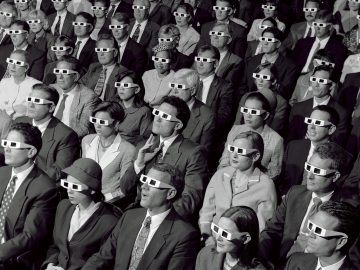by Chris Horner

In May 1919 the remains of a woman were fished from the Landwehr canal in Berlin. The three doctors available must have suspected the identity of the corpse, as they refused to perform a post mortem on it. Identification was in any case made by examination of the clothes on the body. This had been Rosa Luxemburg. She had perished essentially because the leftist uprising in Berlin, initiated by her fellow Sparticist leader Karl Liebknecht without her agreement, had failed. Luxemburg, who had fiercely criticised the Bolshevik approach to revolution as dangerously authoritarian was clubbed and then shot to death by members of the Freikorps, whose repressive violence makes them fitting antecedents to the Nazis.
The great revolutions in ‘The West’ are often seen as turning points, thresholds, new stages in history, and their very dates have a kind of resonance: 1776, 1789 (or 1794), 1917, and so on. History, of course, may make us change our minds about the degree of success, the meaning, the import of those events, but they remain potent as symbols, whatever posterity’s judgment may be. And there is a second sequence, of course, that of the failed revolutions: 1796, 1821, 1848, 1871, 1905, 1918, and 1956. These are the abortive revolutions and uprisings. This second list is the longer one, but like the successful ones, judgment about ultimate meaning, including the meaning of ‘success’ and ‘failure’, remain open to revision and reconsideration.
Of the revolutions that never were, it is the one that began in Germany in 1918 that is most relevant to Hannah Arendt. Arendt, born in 1906, married to Heinrich Blucher (an ex Sparticist) has a biography and a set of concerns defined by the fate of Germany after 1918. Rosa Luxemburg’s life and death – including the nature of the regime that connived in her murder – was the subject of an eloquent and moving essay by Arendt and published in Men in Dark Times in 1966. For all her criticism of Rosa Luxemburg’s mistakes, it is clear that she stands as a kind of exemplar for Arendt. If it had succeeded, if some kind of ‘Red’ government has seized and kept hold of power in the 1918-9 period, the effect on Germany, the nascent Soviet State in Russia, and the rest of the world would have been, one assumes, huge. But it failed, and Hitler and Stalin were the successors to that non-event.

Luxemburg remarked that she was more afraid of a deformed revolution than a failed one. 1918 -9 in Germany failed, and when we think of a deformed revolution, one deflected from its original goal, the Russian example comes easily to mind, as does that of France in the 1790s, with the initial promise of the revolution replaced by war and military dictatorship. This is not to deny that certain gains by those revolutions occurred and were permanent, but to point to the obvious fact that so much else was crushed or perverted.
Arendt’s On Revolution is famously dominated by the French and American revolutions. The usual way of reading it goes like this: The French Revolution was overwhelmed by the demands of the poor: an attempt to solve the social question, mass poverty, dooms the revolution, along with the Jacobin attempt to found a republic of virtue, which goes down in bloody terror. The postscript to this is the Russian revolution: taking its model from this event, rather than the one across the Atlantic, it repeats its story of terror and despotism. In contrast, the American Revolution is the success story: the founders, building on the foundations of prosperity already evident in the colonies, with their ‘prefigurative forms’ of meetings, autonomy and independent communities were able to aim at, in Jefferson’s phrase, ‘public happiness’. The resulting institutions proved capable of preserving liberty after the founding fathers were in their graves. So goes the story of two revolutions, one failed and one successful. But this is not, I think, the sole point of Arendt’s reflections. For Arendt, the American Revolution was also a deformed revolution.
The promise of Jefferson’s ‘public happiness’, as Arendt understands it, lies in the creation and preservation of a public space of politics. This where judgement and action occur, where actors confront each other and where they reveal who they are through those actions and judgements. This, for her, is certainly an agonistic space, but it is also the only one in which a true civic discourse can be established, one where dissensus can occur in a properly republican sense, upholding the res publica, the public thing, the place of democratic politics. Arendt’s reference to ‘the lost treasure of the revolution’ is directed at the USA as, for her, this was the aim of the founders and the eclipse of that space the deformation of the revolution. That lost treasure is public freedom, now conflated with private welfare, with the pursuit of consumption, of private aims and goals and an indifference or even hostility to the idea of political participation. It was lost because ‘public happiness’ became confounded with the private pursuit of well-being, with happiness identified with prosperity. The distinction between a state that is desirable because it preserves and promotes political freedom, and one that is effective in fulfilling the utilitarian goal of economic prosperity has been obscured. But the promise of 1776 was of something more than prosperity. If political freedom means the right to be a participator in government, then it may be that American citizens in the twenty-first century are not really politically free, despite the ubiquitous talk of freedom. They aren’t free in this sense if the USA is essentially a polyarchy in which actual governing is the business of a self-replicating elite, and which the aim of government by as well as for the people has been replaced by the goal of managing endless consumption. For Arendt, true power is found in plurality, in citizens deliberating, judging and acting together in their unique ways. The liberty to pursue private ends is no substitute for political freedom. As Jefferson noted, private interests are the great threat to public happiness.
The problem is political, and it transcends the moment of revolution. For Arendt it was the irruption of participative democracy in the revolutions that kept alive the promise of politics, until the day came when the people went home and left self rule to an alienated clique. It was Rosa Luxemburg’s intuition that both the democratic centralism of the Bolsheviks and the bureaucratic system of the professional social democrats in Germany ran contrary to the project of genuine autonomy. They substitute managerialism, administration and manipulation for actual politics, and so political parties in a modern polyarchy like the USA respond to mood, not real opinions. The public space of freedom was not preserved by either of the two revolutions mainly discussed in On Revolution, and we should include their failure alongside that of the Bolsheviks when we read Arendt’s appreciation of the fact that Rosa Luxemburg ‘was far more afraid of a deformed revolution than an unsuccessful one’. [1]
 The American republic failed to think through the meaning of its own experience. This failure was a contribution to, and symptom of, a fundamental retreat from political action and thought by the bulk of the population, who thereby cease to be citizens and start becoming part of a mass society. The threat to the republic now comes, not from the misuse of public power against private individuals but from ‘the people’ themselves. In an age of ‘rapid and constant economic growth, that is, of a constantly increasing expansion of the private realm…the conditions of the modern age’ in which ‘all the power [has] been given to the people in their private capacity, [with] no space established for them in their capacity of being citizens’ they will hardly follow Jefferson’s injunction to ‘Love your neighbour as yourself, and your country more than yourself’ if the country is not ‘a living presence in the midst of its citizens’ [2]
The American republic failed to think through the meaning of its own experience. This failure was a contribution to, and symptom of, a fundamental retreat from political action and thought by the bulk of the population, who thereby cease to be citizens and start becoming part of a mass society. The threat to the republic now comes, not from the misuse of public power against private individuals but from ‘the people’ themselves. In an age of ‘rapid and constant economic growth, that is, of a constantly increasing expansion of the private realm…the conditions of the modern age’ in which ‘all the power [has] been given to the people in their private capacity, [with] no space established for them in their capacity of being citizens’ they will hardly follow Jefferson’s injunction to ‘Love your neighbour as yourself, and your country more than yourself’ if the country is not ‘a living presence in the midst of its citizens’ [2]
The problem of the political versus social/economic schism in Arendt is a real one. It is exhibited in the parts devoted to the American colonists in On Revolution in particular through a remarkable absence – the lack of any extended discussion of slavery. Black slavery appears briefly in the text, and Arendt characterises this ‘primordial crime’ as part of a tradition prevalent on both sides of the Atlantic, rather than the ‘dominance of self interest.’ But as Domenico Losurdo argued in his book Liberalism, a Counter-History, pace Arendt, the class interests of the plantation owners certainly played an important role, which did not escape contemporary observers. For Losurdo, Arendt joins the colonists in their repression of the ‘macroscopic fact of slavery by means of their ingenious euphemisms.’ [3] And when we turn to contemporary society it is evident that prosperity has been very unequally distributed, to put it mildly. So there is force in the criticism that Arendt damages her analysis of the unfreedom of modern liberal-capitalist societies by ruling the economic/social as pre-political. Economic power is surely associated with exploitation and the ‘private’ realm has a huge effect on the citizen’s freedom: the private here is political – it is where the injuries and struggles around race, gender and class are also to be found. So there is much that Arendt neglects or underplays. Nonetheless, we can see her emphasis as a kind of necessary exaggeration, given the neglect of the political by other theorists. She has something of importance to say that we would do well to consider.
The ultimate problem of a society in which the pursuit of private interests – economic advancement, personal advantage, consumption – has displaced an orientation towards the public sphere, is that there is a growth of ‘worldlessness’. Since for Arendt the public space is where individuals show up for each other, where claims and arguments are tested against others, it is also the primary place where we can distinguish between true and false, since our private fantasies cannot easily survive in the bright light of public examination. It is also the place where we find meaning. This is not to deny that people also find meaning in their private lives, for example in their families, but that the larger sense of a meaningful world can be lost. A kind anomie and nihilism laps around the life of the worker-consumer: what is all this getting and spending for? Judgment and action occur in the space where the human subject shines out as who she is, as a unique one among others in a moment of intersubjective appearance. This cannot be reduced to the ‘community of affect’ in front of our screens that we get in times of heightened emotion, as in the 9/11 events or (in the UK) the death of Princess Diana. Judgment and action in public reveals and recalls us to the world constituted as meaningful by intersubjectivity. It shows the subjects (the judges) to the subjects. It shines forth, it appears, made visible by the artist, the actor, and the judge. And this is what a revolutionary with ‘moral taste’ like Rosa Luxemburg does. It is also what anyone who thinks for herself is doing, who judges because she has elected to think for herself even if it means thinking and acting against what everyone else is doing.
[1] Hannah Arendt; Men in Dark Times, Mariner Books 1966, 1970, P. 53. Arendt goes on to remark that Luxemburg had ‘moral taste’.
[2] Hannah Arendt: On Revolution, Penguin Classics, 1963, 2006, pp 252-3.
[3] Domenico Losurdo: Liberalism, A Counter-History , Verso, 2011, P 30.
